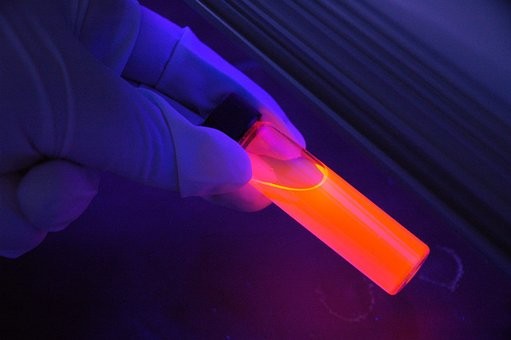The advancement of medical and pharmaceutical industry around the world lies in the development of scientific research and technological innovation. Recently, countries around the world have greatly improved their life sciences, life treatments, and medical devices.

Hypertrophic cardiomyopathy (HCM) drugs show efficacy
US biotechnology company MyoKardia announced that its myosin inhibitor mavacamten (Myk461) has shown efficacy in a phase II clinical trial called PIONEER-HCM. Ten patients with hypertrophic cardiomyopathy (HCM) had a significant decrease in left ventricular outflow tract (LVOT) gradient after 12 weeks of mavacamten, with an average reduction from 125 to 19, with 8 of them below normal. The secondary endpoint included a significant increase in maximum oxygen consumption. MyoKardia plans to start a clinical trial called EXPLORER-HCM with 200-250 participants. On August 8, MyoKardia shares rose 83%, and MyoKardia did not delay the effort to sell 3.5 million shares immediately.
Shanghai Drugs uses single transcription factors and small molecule compounds to induce hepatocyte transdifferentiation
The Xie Xin group of the Shanghai Institute of Materia Medica, Chinese Academy of Sciences has been working on small molecule compounds to induce somatic cell reprogramming and transdifferentiation. Two years ago, a combination of small molecule compounds including BrdU was reported to achieve full chemical induction of ipsCs (Cell Research). , 2015; 25(10): 1171-4), and the successful differentiation of mouse embryonic fibroblasts into cardiomyocytes using a combination of 3-6 small molecule compounds (Cell Research, 2015; 25(9): 1013-24). Recently, the laboratory has found that the combination of small molecule compounds allows mouse fibroblasts to transdifferentiate to hepatocytes under a transcription factor. These hepatocyte-like cells obtained by transdifferentiation have hepatocyte characteristics in vivo and in vitro, and can save the life of mice with liver failure. More interestingly, these transdifferentiated liver-like cells are more likely to be cultured and expanded in vitro than primary hepatocytes, which is also very advantageous for real applications. Based on this research, the research team will try to induce the transdifferentiation of hepatocytes by total chemical induction.
American scientists have discovered that plant flavonoids "joined" intestinal microbes against influenza virus
Researchers at the University of Washington School of Medicine published a major study in the journal Science, which found that flavonoids, which are widely found in natural plants, are up-regulated after the intestinal metabolites are degraded and the resulting metabolites are absorbed. Type I interferon signaling pathway, which enhances the body's antiviral immune response! The researchers particularly emphasized that the deamino tyrosine (DAT) produced by microbial degradation of flavonoids, although not directly killing the influenza virus, is a key component in opening up the body's immune protection and enhancing the antiviral immune response.
Copenhagen University's first public genome editor Cpf1 protein structure
The research team at the University of Copenhagen's Novo Nordisk Foundation Protein Research Institute (NNF-CPR) successfully observed and described how the new genome editing system Cpf1 works. This protein belongs to the Cas family, which cleaves double-stranded DNA and initiates the genome modification process. New technologies can also be used to modify drug synthesis and biofuel production microbes to produce human-derived metabolites, supplemented by Montoya.
Shanghai Jiaotong University scientists discovered the mechanism of intestinal microbial resistance to chemotherapy
Recently, Professor Fang Jingyuan, Associate Professor Chen Wei, Associate Professor Hong Jie and Chen Haoyan from the Department of Gastroenterology, Renji Hospital, Shanghai Jiao Tong University School of Medicine, and Professor Zou Weiping from the University of Michigan, USA, cooperated for the first time to demonstrate the mechanism of Fusobacterium nucleatum. Fusobacterium nucleatum can promote the tolerance of colorectal cancer to chemotherapy by regulating the autophagy of cancer cells. And Fusobacterium nucleatum is precisely the Gram-negative bacteria commonly found in our mouth. This important discovery was published in the top journal Cell magazine.
23andMe opens large-scale depression genetic research
Recently, 23andMe collaborated with the Milken Institute and Lundbeck to launch a genetic study on major depressive disorder and bipolar disorders (also known as bipolar disorder) with genetic data. A combination of questionnaire responses to assess how genes affect the thinking processes of people's brains living under severe mental health disorders—such as attention, decision making, and visual perception.
Shaanxi Kang New Pharmaceutical co., Ltd. , https://www.anabolicsteriod.com